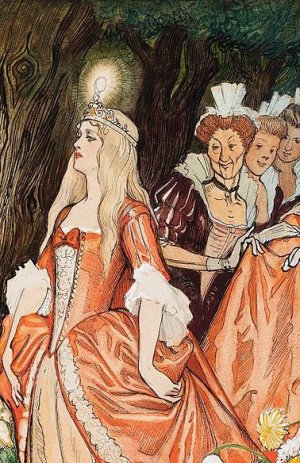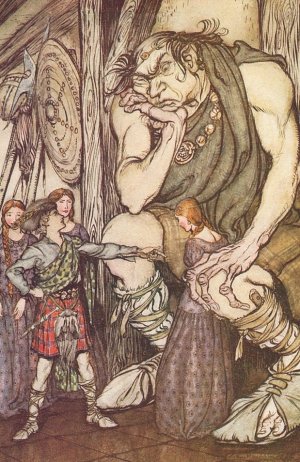| Library / Literary Works |
Italian Popular Tales
The Just Man
Once upon a time there was a peasant and his wife who had a child that they would not baptize until they could find a just man for his godfather.
The father took the child in his arms and went into the street to look for this just man. After he had walked along a while, he met a man, who was our Lord, and said to him: "I have this child to baptize, but I do not want to give him to any one who is not just; are you just?"
The Lord answered: "But - I don't know whether I am just." Then the peasant passed on and met a woman, who was the Madonna, and said to her: "I have this child to baptize and do not wish to give him to any one who is not just; are you just?" "I don't know," said the Madonna; "but go on, for you will find some one who is just."
He went his way and met another woman, who was Death, and said to her: "I have been sent to you, for I have been told that you are just, and I have this child to baptize, and do not wish to give it to one who is not just; are you just?"
Death said: "Yes, I believe I am just! Let us baptize the child, and then I will show you whether I am just."
Then they baptized the child, and afterwards Death led the peasant into a very long room, where there were many lights burning. "Godmother," said the man, astonished at seeing all the lights, "what are all these lights?" Death said: "These are the lights of all the souls in the world. Would you like to see, friend? this is yours and this is your son's."
When the peasant saw that his light was about to expire, he said: "And when the oil is all consumed, godmother?" "Then," answered Death, "you must come with me, for I am Death." "Oh! for mercy's sake," cried the peasant, "let me at least take a little oil from my son's lamp and put it in mine!" "No, no, godfather," said Death, "I don't do anything of that sort; you wished to see a just person, and a just person you have found. And now go home and arrange your affairs, for I am waiting for you."
Source: Italian Popular Tales by Thomas Frederick Crane, A. M.



